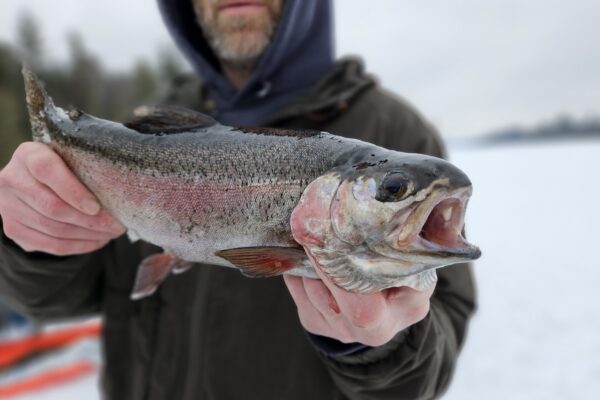Cook County continues to navigate appraisals and federal payments for BWCA lands
Though it is not legal as a result of federal legislation from the Wilderness Act of 1964 and supplemental protections signed into law in 1978, if land inside the Boundary Waters Canoe Area Wilderness could be logged, mined, or developed, it would be worth more than an estimated $1 billion in Cook County alone, according to Assessor Bob Thompson.
Despite the ability to collect tax revenue from land owners or developers, the county still is legally allowed to be compensated in some form for BWCA land in Cook County. The amount of those payments, which comes from the federal government, remains in limbo.
Under the Thye-Blatnik Act, Cook County could see a reduction in federal funds paid to the county annually, if the appraisers undervaluation influences the Secretary of Agriculture’s final value determination, according to Thompson. The most recent appraisal occurred in 2018 and continues to be debated by county and federal officials.
On March 6, Thompson attended a meeting between Rep. Pete Stauber in Duluth and other representatives from Cook, Lake, and St. Louis Counties, regarding the reappraisal of the BWCA land.
Officials present at the meeting discussed concerns they had with the congressman about the 2018 valuation opinions completed by two different land appraisers. Both appraisals have been appealed by the three counties for low valuations, the appeal of one of the appraisals is currently under review by U.S. Forest Service Appraisers, Thompson said.
During the meeting, Stauber informed the counties that he plans to bring legislation to congress, which if approved, would keep the federal payments to Cook County at the 2018 level (for payments in years 2019 through 2028). The counties have been instructed to start preparing for the 2028 appraisal now, Thompson told the Cook County Board of Commissioners during a meeting March 14 at the courthouse in Grand Marais. Some of the suggestions made include meeting with representatives from the Forest Service, contacting mineral valuation experts, and budgeting for county contracted appraisals, Thompson said.
The county assessor said he continues to believe the federal government is not adequately compensating local governments in northeastern Minnesota in the form of payments for land set aside in the BWCA. In 1948, United States lawmakers passed the Thye-Blatnik Act to buy resorts and private lands in what would eventually be named the Boundary Waters Canoe Area Wilderness. The bill also provides payments in-lieu-of-taxes (PILT) to Cook, Lake and St. Louis counties for federal wilderness land to make up for lost private property taxes. A valuation process is completed every 10 years to determine how much each county receives through this piece of legislation.
Following an appraisal that was done in 2018, land inside the BWCA is worth $800 an acre, according to the Forest Service. The land is valued mostly on timber and how much money the forest could generate should a timber sale be conducted, according to Thompson. The county assessor told WTIP Nov. 11 that other factors, including mineral deposits and development should be considered. Under that scenario, Thompson said, the land in the BWCA is worth approximately $4,000 an acre. There are approximately 242,000 acres of BWCA land in Cook County. With that in mind, Thompson added, neither county nor federal officials are suggesting land in the BWCA should be developed, logged or mined. Regardless, federal law prohibits mining or logging in the BWCA.
St. Louis, Lake and Cook Counties found out in May the valuation of federal lands inside the BWCA. The findings were not what the counties were hoping for. County officials were informed May 12 by representatives from the U.S. Forest Service that the county will receive less than the previous amount of approximately $2 million they’d been receiving for a decade. Following the 2018 appraisal, the annual payments to the county from the federal government for BWCA lands were lowered to approximately $1.35 million for the next decade.
A series of appeals and the proposed legislation by Stauber continue to keep the PILT payments and this issue on the table of county government and Forest Service officials.
WTIP’s Joe Friedrichs spoke with Thompson to learn more on this topic. Audio below.














